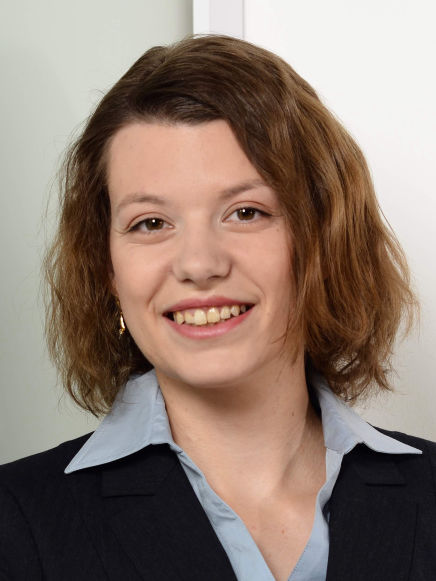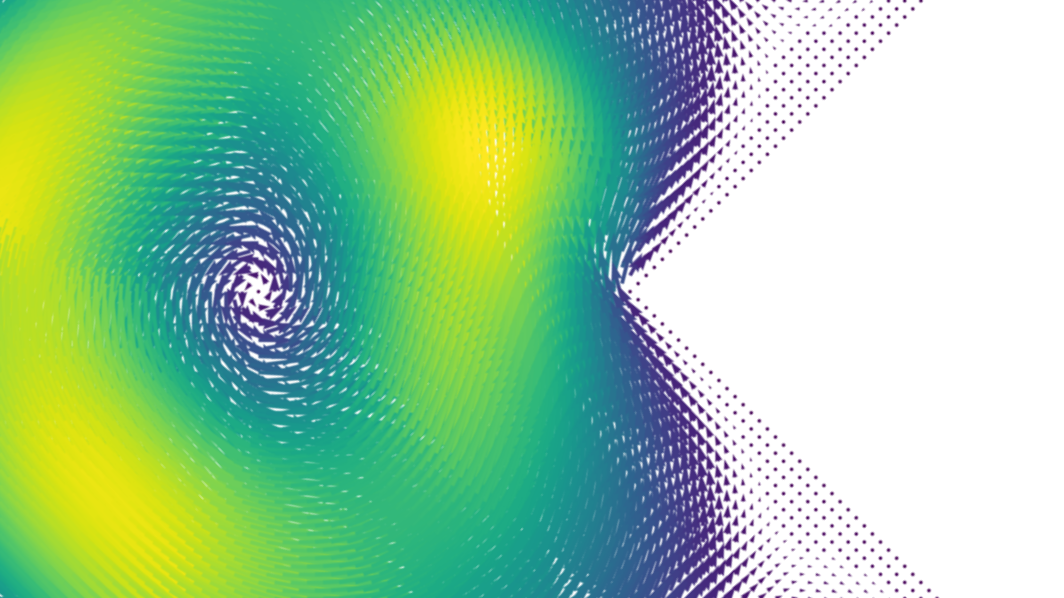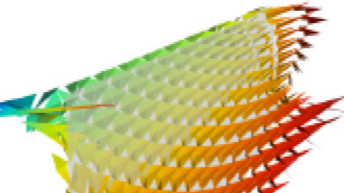Contact
Fleurianne Bertrand
TU Chemnitz
Fakultät für Mathematik
Reichenhainer Straße 41
09126 Chemnitz
Germany
TU Chemnitz
Numerical Analysis and Optimisation
I studied mathematics at the Leibniz University of Hannover (Germany) and obtained my PhD for my work on H(div)-discretizations of two-phase flows in July 2014 under the supervision of Prof. Gerhard Starke.
I then joined the University of Essen for a Post-Doc and started working on solid mechanics, especially as a PI of the projects numerical simulation of thermally induced crack propagation and approximation and reconstruction of the stress tensor in the deformed configuration for hyperelastic materials.
October 2018, I joined the Humboldt-Universität zu Berlin as a W1-professor for Computational Mathematics. There, I broaded my area of expertise in the area of eigenvalues problems.
December 2020, I obtained a permanent position at the Univeristy of Twente as a professor for mathematical theory of the finite element method
and since April 2023, I hold the chair of numerical analysis for PDEs at TU Chemnitz.
My work concentrates on advancing the finite element method to refine numerical techniques for solving partial differential equations, thereby enhancing the precision with which complex scientific and engineering phenomena are described.
In particular, I am the Co-Pi of the research project synthetic data-driven model reduction methods for modal analysis and teaching the scientific computing and the finite element courses, as well as mathematics for physicists and electrical engineers.


with Prof. Daniele Boffi, founded by KAUST.
We aim at reducing the complexity of the simulations of large, complex systems described in terms of partial differential equations in the spirit of Reduced Order Methods (ROMs).
As a first step, we considered a reduced order method for the approximation of the
eigensolutions of the Laplace problem with Dirichlet boundary condition.

with Prof. Caroline Birk and Prof. Christian Meyer, founded by
Mercator Research Center
Ruhr (MERCUR).
Rapid temperature changes may induce thermal stresses, which lead to the initiation and acceleration of damage and fracture processes in structures. The aim of this project is to develop efficient simulation methods for the prediction of thermally-induced crack propagation processes.

with Prof. Jörg Schröder and Prof. Gerhard Starke, founded in the DFG priority programm SPP 1748.
The main objective of this Priority Programme is the development of modern non-conventional discretisation methods, including the mathematical analysis for geometrically as well as physically non-linear problems in the fields of e.g. incompressibility, anisotropies and discontinuities (cracks, contact).

Minimum Residual and Least-Squares Finite Element Methods
Santiago, Chile
October 5-7, 2022
The aim of this workshop is to bring together leading international researchers in the area of minimum residual and least-squares finite element methods. This is the fifth edition and takes place Oct. 5-7, 2022 at the Pontifical Catholic University of Chile in Santiago, Chile. The first workshop in this series took place 2013 in Austin, followed by the second workshop 2015 in Delft, the third one 2017 in Portland, and the fourth one 2019 in Berlin.